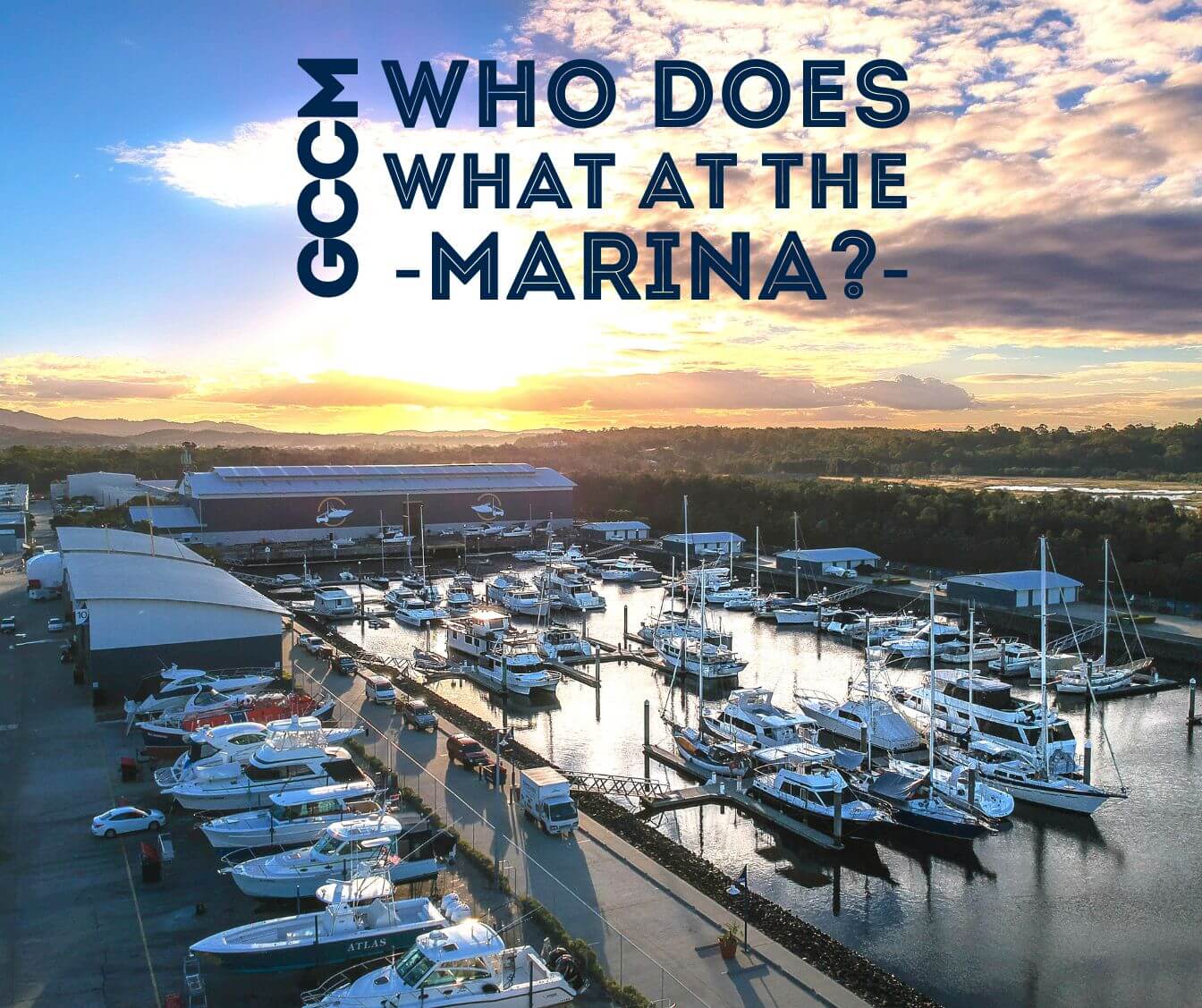Gold Coast City Marina and Shipyard (GCCM) is a certified Clean and Fish Friendly Marina. We take our responsibilities towards healthy waterways very seriously. In 2020, we welcomed a new client who lives this ethos by monitoring and researching the health of our reef systems as well as our marine megafauna. We sat down with Dr Dave Paton from Blue Marine Planet to discuss everything from humpback whales to the reef and managing a fleet of research vessels.
Can you tell us a little about what Blue Planet Marine does?
Blue Planet Marine is a leading environmental research and consulting organisation providing expert scientific services within the Australian, New Zealand, Asian, South Pacific and Antarctic marine environments. We support government agencies, research institutions and universities undertaking research and monitoring of megafauna, such as whales, dolphins, turtles and dugongs, as well as projects related to our reef systems. Additionally, we conduct our own research projects. In doing so, we operate a fleet of 17 boats ranging from RIBs through to the 24-metre R/V Escape which is currently at GCCM being repainted and completing a small refit. Like many others, we are going through a quieter period and thought we would take the opportunity to complete some long overdue work.
How long have you been operating and what has changed in that time?
This year, we are celebrating our 20th year of operations just like GCCM. The greatest improvements we have seen in that time is the increase in the humpback whale population migrating up the Australian east coast. In the 1950s and 60s, the humpback populations were drastically in decline yet historical policies to protect them have had an effect; this year 40,000 whales will head north starting basically from now. It is the great success story of environmental management and intervention. Unfortunately, sea turtles, inshore dolphins, and dugongs are not faring as well. The combination of coastal developments, weather events, fishing, and vessel collisions are adversely affecting these animals. It is not without hope: cleaner waterways and, particularly inshore waterways, will contribute to the long-term fate of these animals.
We hear a lot of conflicting information about the health of the reef. What do you see?
Firstly, the reef is pretty resilient. Given the right circumstances, it can, and will, bounce back. Generally speaking, the northern and inshore areas are suffering more than other regions. This year was predicted to be a mild year for coral bleaching but unfortunately, that has not transpired. One of the projects in which we are actively involved is Cloud Brightening. By misting and evaporating seawater in localised areas of the reef, we can seed clouds – by which we mean increasing the cloud cover – which reduces sun exposure and sea temperatures. Cooler waters result in less coral bleaching. It is an exciting project and one which moves the industry beyond monitoring to intervention.
What can the boat owner do to keep the waterways clean?
The number one thing boat owners can do is to consider how they store and dispose of their rubbish. Well managed bins and refuse areas on vessels are important to stop waste inadvertently being blown overboard. Any waste oil or oily water should be disposed of in secure facilities like the one at GCCM. Adhere to the go-slow zones of our marine parks. Those would be the top tips.
Plastic waste in the waterways is troubling and it is heartening to see a broader community push to eliminate single waste plastics. GCCM has committed to removing all single-use plastic from their facility so we are all moving in the right direction and the turtles will thank us.
Most people only manage one boat, how do you manage a fleet of 17?
Mostly, we operate in Queensland which has a thriving marine service industry so we are well supported. It is vitally important as we work in remote and sensitive environments that our vessels are in perfect working order. As a result, we service and lift the fleet regularly. We look for yards and contractors who can get the work down on time and in budget so we are not wasting time and resources away from our core business. This is the first time we have visited GCCM and things have certainly run smoothly; so much so, we are considering bringing more vessels in the future. Additionally, there are initiatives, facilities, and processes in place at GCCM which shows they are sensitive to the marine environment and as keen as we are to keep our waterways healthy.
GCCM is a certified Clean Marina having received 100% on its recent audit. The yard houses the world’s largest solar farm in a marina; rainwater harvesting; treatment and recycling of boat washdown water; bio-retention gardens; and more recently the construction of a comprehensive recycling and refuse station for GCCM staff, tenants and customers to access. The onsite resource recovery centre is making huge inroads into increasing diversion from landfill for solid and liquid waste.
More recently, GCCM has pledged to remove single-use plastics from the facility by 2025 and re-attained its Fish Friendly Marina accreditation. The GCCM team has worked closely with Seabin Foundation and SUEZ Waste Management & Water Solutions through their community outreach program to install the first Seabin device in a marina on the Gold Coast.










